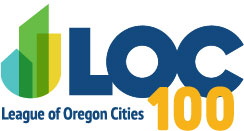Urban Renewal
Urban renewal is a program authorized under state law and implemented by cities or counties that allows for the concentrated use of revenues (often tax-increment financing from property tax revenues) to improve areas within the designated urban renewal district. Eligible areas are called "blighted" by state statute and typically contain section of a city which are underdeveloped or are not contributing fully to the local economy.
Taxing districts have expressed concerns in the past about the use of urban renewal funds on public buildings that will be exempt from property taxes in the future. They argued that the taxing districts were giving up needed revenue and not receiving the full expected benefit. In order to find a solution that would work for cities and taxing districts, a new bill was passed in the 2019 Legislative Session. The bill requires cities to ask for the consent of taxing districts to use urban renewal funds for public buildings. While not previously required by law, some jurisdictions have already been working with the taxing districts within the urban renewal district to pursue urban renewal projects that would benefit all parties.
Per the 2019 bill, cities are also required to report on both the maximum indebtedness and how much of that money they have already used. The new legislation also requires cities to distribute their annual report to each taxing district within their jurisdiction.

